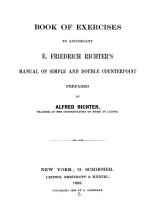Double negatives
Bạn đang xem bản rút gọn của tài liệu. Xem và tải ngay bản đầy đủ của tài liệu tại đây (11.42 KB, 1 trang )
Double negatives
In some languages, a negative word like nobody, nothing or never has to be used with a negative verb. In
English, these words are themselves enough to give a negative meaning, and not is not necessary.
I opened the door, but I could see nobody. (NOT I opened the door, but I couldn’t see nobody.)
You never understand me. (NOT You don’t never understand me.)
Nothing worries him. (NOT Nothing doesn’t worry him.)
Nobody or not anybody
The words nobody, nothing, never etc are very emphatic. Instead we often use not anybody, not anything,
not ever etc. Note that anybody, anything, ever etc are not themselves negative words – they have to be used
with not to give a negative meaning.
I didn’t see anybody. OR I saw nobody. (NOT I saw anybody.)
I can’t tell you anything. OR I can tell you nothing. (NOT I can tell you anything.)
Notes
Not anybody, not anything etc., cannot be used at the beginning of a clause. Instead we use nobody, nothing
etc.
Nobody is perfect. (NOT Not anybody is perfect.)
Nothing matters. (NOT Not anything matters.)
Nowhere is safe. (NOT Not anywhere is safe.)
In many British, American and other dialects, two or more negatives can be used with a single negative meaning.
I didn’t see nobody. (= I didn’t see anybody.)
Note that a double negative is not equivalent to a positive. The sentence ‘He didn’t say nothing’ does not mean
that ‘He said something’. It is simply a non-standard but understandable way of saying ‘He didn’t say anything’.
Stay on top of your writing! Download our grammar guide from www.englishgrammar.org to stay up-to-date.
Powered by TCPDF (www.tcpdf.org)









